Consider the following centered hexagonal bitboard representation (padding is in boldface):
56
55 49
54 48 42
53 47 41 35
52 46 40 34 28
45 39 33 27
44 38 32 26 20
37 31 25 19
36 30 24 18 12
29 23 17 11
28 22 16 10 04
21 15 09 03
20 14 08 02 60
13 07 01 59
06 00 58
63 57
56This representation fits in a 64-bit integer and allows for easy movement in the 6 hexagonal directions by rotating bits 1, 7 or 8 spaces to the right or to the left respectively. If it helps with visualization, you can deform this hexagon into a square:
42 43 44 45 46 47 48
35 36 37 38 39 40 41
28 29 30 31 32 33 34
21 22 23 24 25 26 27
14 15 16 17 18 19 20
07 08 09 10 11 12 13
00 01 02 03 04 05 06Now, what I want to do is rotate this bitboard 60° clockwise, such that the [45,46,47,38,39,31] triangle becomes the [48,41,34,40,33,32] triangle, etc. How do I do this?
